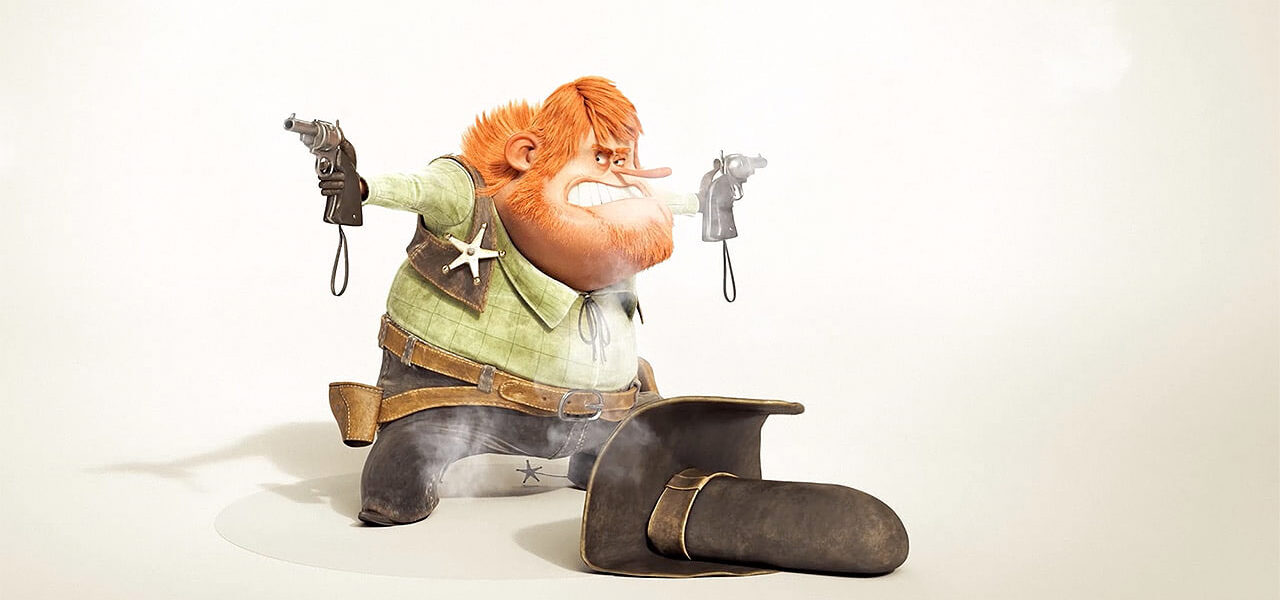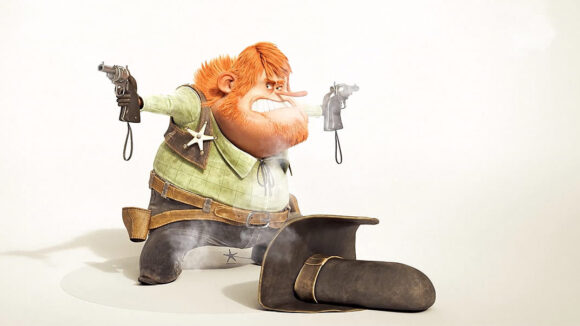

Agora Offers Tips For Successful Leadership In The Animation Industry
Agora Studio is a global network of professional artists which provides freelancing services to studios around the world.
The company’s stated mission is “To close the gap between freelancers and studios, empowering artists to work remotely on inspiring projects and provide efficient solutions for production needs.”
To that end, we asked Agora to put together a series of three pieces themed around leadership which will appear on the Cartoon Brew site over the coming weeks. This, the first, is a collection of guidelines to help facilitate a better working relationship between leaders and those working under their direction.
In subsequent pieces, Agora will discuss how to deal with clients and outline communications best practices. The group is always on the look-out for new talent, and interested parties can find an application by following this link.
Agora’s Guidelines for leaders
Providing a creative, safe, and friendly environment has always been part of Agora’s culture. As the small team grew into an organization managing hundreds of artists working remotely on dozens of productions, maintaining this culture became a real challenge. This led Agora’s leadership team to establish guidelines to ensure every supervisor and manager within the organization sustains their team’s morale and fosters a positive environment for artists to do their best work. Although these are universal guidelines, they are even more important when working remotely. By sharing our guidelines, we hope it can help other studios and artists facing similar challenges to those we’ve seen, and improve everyone’s working experience.

Help artists understand goals and constraints
Put simply, do not micro-manage. Rather, establish the sandbox in which your artists can improvise and let them play. If results do not meet expectations, reduce the size of the sandbox by providing more specific guidelines, but avoid giving directions which explain exactly what to do. If you find yourself with no choice but to do so, you may be experiencing a mismatch between the artist and the task expected of them. If micro-management is necessary, explain why it’s needed. Do it with kindness and use the experience as an opportunity to learn and improve.
Ask for input
Don’t assume you will get honest input and criticism from your team. Authority changes everything. No matter how kind and open-minded you believe yourself to be, to your team you are a an authority figure that has a direct impact on them and their work. You will often be told what they think you want to hear. Be mindful of that and be proactive to get honest feedback, don’t simply expect it.
Help problem-solve with them
Get your hands dirty. At times you need to go in the trenches with your team and help out. Don’t sit in an ivory tower and project an attitude of ‘I don’t know, figure it out!’ Get down there and be part of the solution. The expectation is that over time, your team will become more autonomous. Then, as team members gain seniority, they will be the ones helping others.

Help artists grow their skillset
Every bit of feedback and advice is an opportunity to share a piece of knowledge to help your artists improve. Don’t just tell them what to adjust, explain why it needs adjusting.
Celebrate the wins, no matter how small
This is especially important with remote work, as we do not have the subtle social cues around us that usually communicate appreciation. That being said, we need to be careful with how we distribute praise. It must be earned, otherwise it loses its meaning. Overdoing it will come off as disingenuous, which might ruin subsequent words of appreciation.

Be an umbrella to protect them from the nastiness that can rain down
You are not only responsible for your work, but also for the work of your team. Part of that responsibility is to maintain a safe environment while limiting stress and distractions. Become the shield that blocks outside nastiness that your team shouldn’t have to deal with. Honesty and transparency are not the same thing. Leaders need to be honest, but can’t be transparent at all times. You can’t share everything with everyone all the time.
Ask what opportunities your artists are looking for
It’s not possible to fulfill everyone’s desires, but involving them in the decision-making process is advised to help create ownership. When distributing work, ask about everyone’s preferences while making it clear they will be taken into consideration, among other factors.
More one-on-one
This is especially important in the case of remote work. Engage in more one-on-one discussions to create social bonds. Create the time to understand their situation. Do it with no specific agenda, just as an opportunity to chat. You’ll be surprised how much you don’t know about members of your team and their current situations. In production we rarely have time for those types of meetings. It’s important to make the time.
Listen, they might just need to vent
At times artists don’t need or want advice or solutions, they just need to vent. Often, they’re looking for opportunity to express their frustrations or whatever else they might need to get off their chest. Don’t assume you always need to be a firefighter. When in doubt, ask; “Are you asking for advice, or do you just need to vent?” If it’s the latter, just listen. This venting process often allows them to better process what they are dealing with. If you feel your advice can help in the situation, ask them if they are interested in your opinion.

Take the blame
Ownership is one of the most important parts of leadership. Distribute praise and take blame. To do otherwise is a recipe for leadership disaster. Keep your ego in check. Be comfortable making mistakes and be responsible for the mistakes of those on your team. If a client doesn’t like what they see based on the direction you gave the artist, don’t skip a beat. Raise your hand and clarify it was your call. You will gain respect from both the artist and the client.
Prevent ambiguity
You don’t control the director’s expectations, but you must ensure that they are clear to provide coherent directions to everyone on your team. You are the filter between the director and your team, ensuring that precise direction goes one way and that work which satisfies those directions goes back the other way.
Repeat yourself
Don’t assume that because you gave a direction which seemed to be acknowledged that the message has been entirely understood. Refer to the “Ask for input” guideline above. At times you will be told “Yes, got it!” by a someone who is only saying so out of fear of being wrong, even if the person don’t completely understand. An easy trick is to ask how they’ve interpreted the directions you have provided. Do this if you feel it’s necessary, but keep in mind that doing it systematically can become annoying for your team.
Acknowledge the elephant in the room
You are in charge of generating the conversations no one wants to have. The longer an elephant in the room is ignored, the bigger it gets, and the more awkward it becomes for everyone when it must be confronted. If needed, call for a one-on-one meeting to discuss issues privately. If you’ve noticed tension between two artists on your team, it might be that a meeting with both is appropriate. If you notice a director always criticizing the work of a specific artist, schedule a talk with them to clarify if there are any personal issues involved. In all cases, address the situation as rapidly as you can.
